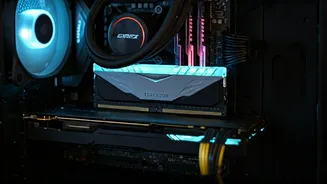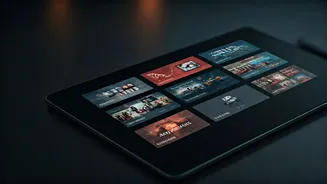Understanding Application Emails
A job application email is a formal message you send to a potential employer when applying for a job. Essentially, it functions as a cover letter, introducing
you, highlighting your qualifications, and showing your interest in the position. Since this email is often your first point of contact with a recruiter, it is crucial to make it count. This article will guide you through the process of composing these emails, discussing all their components, and providing useful templates and examples.
Crafting the Perfect Email
Several key strategies can help you write a compelling job application email. First, research the company to align your email with their values and the job's requirements. Personalize your email by addressing the hiring manager by name, avoiding generic greetings. Create an attention-grabbing subject line with the job title and your name. Begin with a strong opening sentence to highlight your enthusiasm and suitability. Tailor your message to the specific job, emphasizing relevant skills and experiences, and quantify your achievements. Keep your email concise and highlight your genuine interest in the role and company. Proofread carefully for any errors and include a clear call to action, such as requesting an interview.
Essential Email Components
An effective job application email comprises several critical elements. Begin with a concise and informative subject line that includes the specific job title and your name, such as 'Application for Marketing Manager Position - Rahul Yadav'. Use a professional salutation, addressing the recipient by name if known; otherwise, 'Dear Hiring Manager' is acceptable. The introduction should briefly introduce yourself and the job you're applying for. Then, highlight why you're a good fit by tailoring your qualifications to the job description and using examples to showcase your skills. Research the company, and express genuine interest, referencing aspects that resonate with you. End with a closing that thanks the recipient, reiterates your interest, and includes your contact information and the attachments.
Email Formatting Essentials
The structure of your email should be clear and professional. The subject line is the first thing a recruiter sees, so it should be clear and should include the job title. After the subject line, address the hiring manager properly. Follow up with an introduction that states the position you are applying for, followed by a section describing your qualifications and why you are a good fit for the role. Include a section that highlights your interest in the company and their goals, followed by a closing statement that thanks the reader and provides your contact information. Ensure you attach your resume and any other requested documents. Then, proofread it thoroughly before sending.
Sample Application Emails
Several email templates cater to various situations. A 'Sample Email for Sending Resume' includes a subject line with the job title and your name. The body expresses interest, mentions experience, and highlights skills, and requests an interview. A 'Sample Email to HR for Job Inquiry' expresses interest in opportunities at the company, mentioning relevant experience and skills and attaching a resume for review. A 'Sample Email for a Job Application After a Career Gap' addresses a career break, highlights relevant activities during that time, and attaches an updated resume. Applying for a Remote Position includes a subject line and clearly expresses the ability to work remotely. Networking event follow-up includes a personalized message referencing the meeting, attaching the resume, and requesting an interview.
Email Tips & Tricks
When applying for a job via email, remember to be professional, concise, and tailored to the specific job and company. A well-written email can greatly improve your chances of getting an interview and ultimately, landing the job. A simple job application email can be very effective and should include your name, and the position you are applying for, as well as the years of experience you have. Ensure you highlight a specific reason why you want the job, such as its alignment with your skills, and include a brief highlight of your achievements. Thank the hiring manager for their time and express your eagerness to further discuss your qualifications.










